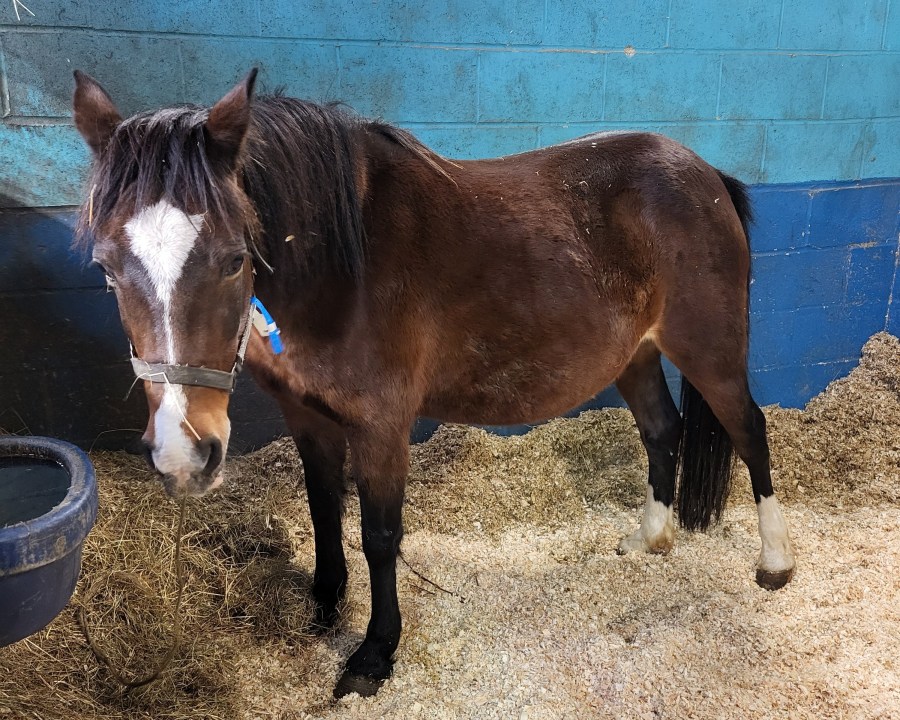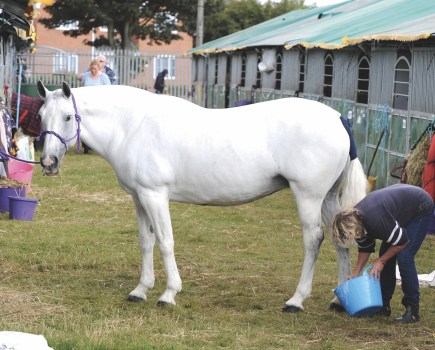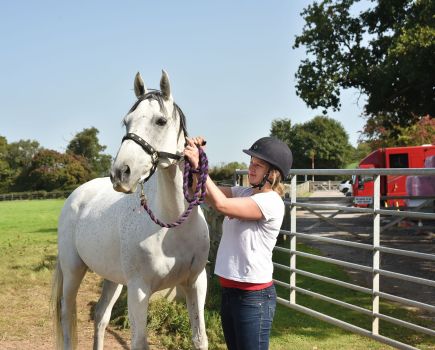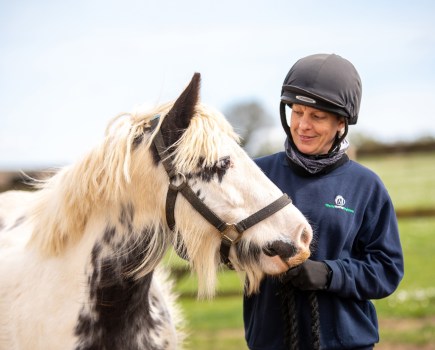Equine charity World Horse Welfare is appealing for stronger legislation to disrupt horse smuggling and for the creation of a centralised and fully digitalised ID and traceability system across the UK and EU states.
World Horse Welfare believes a lack of accountability is being exploited by smugglers when the UK is used as a land bridge for moving horses between Ireland and the EU.
The charity has looked into the backgrounds of a recent batch of eight horses who came into their care after a transporter carrying 20 horses was stopped at Dover in December 2024 and compiled a timeline of events to identify the gaps that illegal traders are exploiting.
The Expert, a Thoroughbred who was on the transporter and now resides at one of World Horse Welfare’s rescue and rehoming centres, had raced at Dundalk Races 24 hours before the transporter left Ireland.
Another Thoroughbred in the group had last raced in August 2024 and didn’t have a microchip despite having a passport while one of the non-Thoroughbred’s was found to have two microchips which can occur when a horse has been deliberately re-identified to hide their background and increase their value.
“Just a day after racing in Ireland, The Expert found himself being exported to mainland Europe on a transporter full of diseased and suffering horses, some of whom undoubtedly would have ended their journey at a European slaughterhouse,” explains World Horse Welfare chief executive Roly Owers.
Horses viewed as ‘commodities’
“Sadly, what this most recent case highlights is that it is all too easy for once well cared for horses to be exploited by those who only view them as commodities.
“Those involved in the trade know they can operate with impunity as a result of a flawed system.
“Horses crossing borders with different jurisdictions and identification policies, and paper-based ID the mainstay for most, simply isn’t good enough to protect these vulnerable animals.
“For the evidence to be robust and those responsible held accountable, we urgently need a centralised and fully digitalised ID and traceability system across the UK and EU states.”
“Although it appears that the horses being transported had the correct paperwork, our understanding of the smuggling trade enabled us to recognise quite quickly that this shipment had the hallmarks of horse smuggling, and that at least some of these horses were likely going to slaughter which means their paperwork would have been fraudulent.”
Biosecurity risk
The prevalence of infectious disease found in both the transporter stopped in December 2024 and the one housing the ‘Dover26’, which was found in February 2024, is also of huge concern to the charity and highlights the biosecurity risks associated with horse smuggling.
Horses can be moved to and from Ireland to EU member states via the UK without an inspection at a Border Control Post if they have an Intra Trade Animal Health Certificate (ITAHC).
“Two lorries of smuggled horses in just over 12 months, both carrying infectious disease: Equine Influenza in one and strangles in the other, with at least some of the horses likely on their way to slaughter on the continent.
“Given that horses aren’t traceable and from what we know about the last case of smuggled horses we rescued, there are plenty of opportunities for those involved in this illegal trade to drop horses off or pick them up at any point on their journey.
A pressing issue
“These are just the two shipments that the Animal Plant and Health Agency were able to stop, who knows how many go undetected?
“It is clear how urgently the government must put the right enforcement measures in place to ensure the ban on live export for slaughter makes a difference to protect horses and stop horse smuggling.
“Both cases of smuggled horses that we have brought into our care have led to our Norfolk Centre experiencing significant disruption as a result of the equine diseases they have brought with them.”
To view World Horse Welfare’s petition asking UK decision makers to act now to improve laws to protect horses from smuggling, click here.
Update: since this story was published, Defra minister Baroness Hayman of Ullock announced at the National Equine Forum that while the government “recognises the importance of equine identification and traceability”, pressure on public finances means the development of a digital equine identification and traceability scheme has been paused.
Image © World Horse Welfare.
Related content
- How to tell if a horse is happy
- UK bans live export of horses for slaughter
- Petition set up with the aim of updating the Dangerous Dogs Act to better protect horses
- Public attitudes towards horse sport ‘on the right track’ but there is still more to do
- Learn to read your horse’s body language with this expert advice









